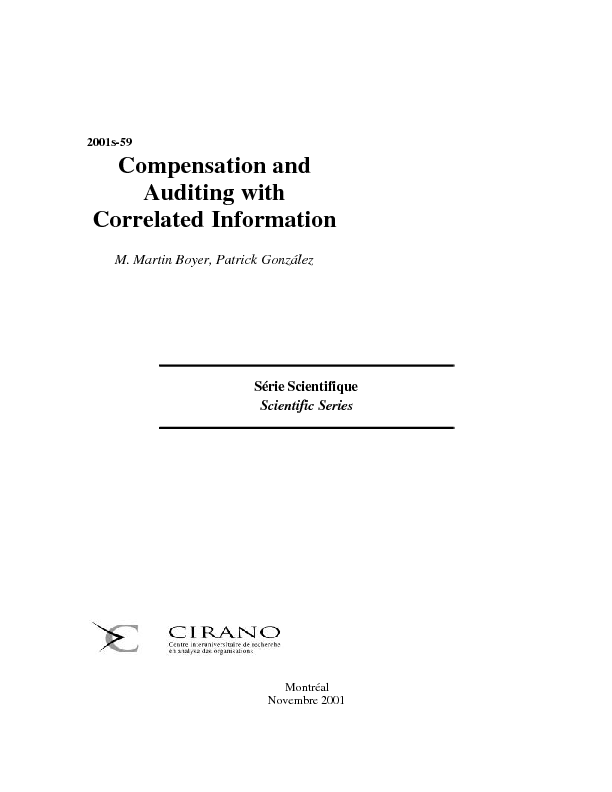Compensation and Auditing with Correlated Information
An extensive academic literature exists on the optimal compensation of top executives. A less-developed literature pertains to the optimal compensation of middle management personnel. The goal of this paper is to address that concern. The setup we use is that of a firm s president (the Principal) who must distribute year end bonuses to plant managers (the Agents) who possess private information concerning production costs, information that is correlated across managers. The principal wants to design a contract that uses this correlated information. We find that the fully specified contract may be too complex for corporations to implement. This may explain why firms resort to simple schemes such as pay scales and subjective-based compensation. It gives also a theoretical bias for the existence of hierarchies in an organization.
[ - ]




